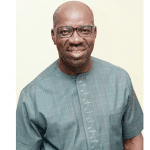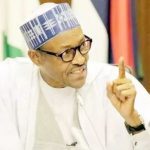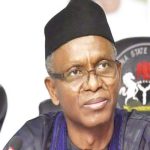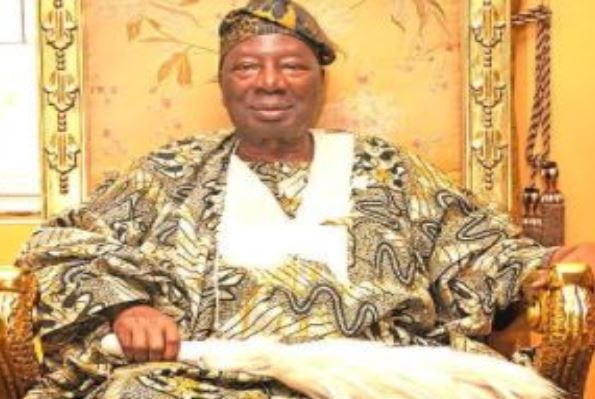The World Health Organisation has said one out of every four Nigerians suffers from mental illness. As the pandemic and insecurity continue to grip the country, which only has eight federal neuropsychiatric facilities, this figure could climb.
President Muhammadu Buhari allocated only 4.3 percent of the total budget for health in the country’s 2020 budget.
In Nigeria’s 2020 budget, President Muhammadu Buhari allocated just 4.3 per cent of the total budget for health.
“In Nigeria, it is estimated that 20–30% of the population suffers from mental problems.” Given Nigeria’s estimated population of 200 million, this is a fairly big amount. Unfortunately, mental health illnesses receive little care in Nigeria,” Health Minister Abdulaziz Abdullahi stated in November.
Dr Chris Ngige, Nigeria’s former Minister of Labour and Employment, stated in April that the country has “more than enough” doctors. However, the WHO showed that Nigeria has the greatest caseload of depression in Africa and ranks 15th in the world in terms of suicide frequency, with less than 10% of mentally ill Nigerians having access to healthcare.
The nonprofit organisation Nigeria Health Watch made a poll in 2017 and found out that roughly nine out of every ten doctors in Nigeria are seeking to find work outside the country to pursue better career and financial opportunities.
As a result, Nigeria may only expect one doctor for every 4,000 to 5,000 patients, rather than the WHO-recommended one doctor for every 600 doctors. Nigeria Health Watch recommends keeping up with overall patient demand as the Nigerian population continues to grow.
The World Health Organisation has said one out of every four Nigerians suffers from mental illness. As the pandemic and insecurity continue to grip the country, which only has eight federal neuropsychiatric facilities, this figure could climb.
President Muhammadu Buhari allocated only 4.3 percent of the total budget for health in the country’s 2020 budget.
In Nigeria’s 2020 budget, President Muhammadu Buhari allocated just 4.3 per cent of the total budget for health.
“In Nigeria, it is estimated that 20–30% of the population suffers from mental problems.” Given Nigeria’s estimated population of 200 million, this is a fairly big amount. Unfortunately, mental health illnesses receive little care in Nigeria,” Health Minister Abdulaziz Abdullahi stated in November.
Dr Chris Ngige, Nigeria’s former Minister of Labour and Employment, stated in April that the country has “more than enough” doctors. However, the WHO showed that Nigeria has the greatest caseload of depression in Africa and ranks 15th in the world in terms of suicide frequency, with less than 10% of mentally ill Nigerians having access to healthcare.
The nonprofit organisation Nigeria Health Watch made a poll in 2017 and found out that roughly nine out of every ten doctors in Nigeria are seeking to find work outside the country to pursue better career and financial opportunities.
As a result, Nigeria may only expect one doctor for every 4,000 to 5,000 patients, rather than the WHO-recommended one doctor for every 600 doctors. Nigeria Health Watch recommends keeping up with overall patient demand as the Nigerian population continues to grow.
The World Health Organisation has said one out of every four Nigerians suffers from mental illness. As the pandemic and insecurity continue to grip the country, which only has eight federal neuropsychiatric facilities, this figure could climb.
President Muhammadu Buhari allocated only 4.3 percent of the total budget for health in the country’s 2020 budget.
In Nigeria’s 2020 budget, President Muhammadu Buhari allocated just 4.3 per cent of the total budget for health.
“In Nigeria, it is estimated that 20–30% of the population suffers from mental problems.” Given Nigeria’s estimated population of 200 million, this is a fairly big amount. Unfortunately, mental health illnesses receive little care in Nigeria,” Health Minister Abdulaziz Abdullahi stated in November.
Dr Chris Ngige, Nigeria’s former Minister of Labour and Employment, stated in April that the country has “more than enough” doctors. However, the WHO showed that Nigeria has the greatest caseload of depression in Africa and ranks 15th in the world in terms of suicide frequency, with less than 10% of mentally ill Nigerians having access to healthcare.
The nonprofit organisation Nigeria Health Watch made a poll in 2017 and found out that roughly nine out of every ten doctors in Nigeria are seeking to find work outside the country to pursue better career and financial opportunities.
As a result, Nigeria may only expect one doctor for every 4,000 to 5,000 patients, rather than the WHO-recommended one doctor for every 600 doctors. Nigeria Health Watch recommends keeping up with overall patient demand as the Nigerian population continues to grow.
The World Health Organisation has said one out of every four Nigerians suffers from mental illness. As the pandemic and insecurity continue to grip the country, which only has eight federal neuropsychiatric facilities, this figure could climb.
President Muhammadu Buhari allocated only 4.3 percent of the total budget for health in the country’s 2020 budget.
In Nigeria’s 2020 budget, President Muhammadu Buhari allocated just 4.3 per cent of the total budget for health.
“In Nigeria, it is estimated that 20–30% of the population suffers from mental problems.” Given Nigeria’s estimated population of 200 million, this is a fairly big amount. Unfortunately, mental health illnesses receive little care in Nigeria,” Health Minister Abdulaziz Abdullahi stated in November.
Dr Chris Ngige, Nigeria’s former Minister of Labour and Employment, stated in April that the country has “more than enough” doctors. However, the WHO showed that Nigeria has the greatest caseload of depression in Africa and ranks 15th in the world in terms of suicide frequency, with less than 10% of mentally ill Nigerians having access to healthcare.
The nonprofit organisation Nigeria Health Watch made a poll in 2017 and found out that roughly nine out of every ten doctors in Nigeria are seeking to find work outside the country to pursue better career and financial opportunities.
As a result, Nigeria may only expect one doctor for every 4,000 to 5,000 patients, rather than the WHO-recommended one doctor for every 600 doctors. Nigeria Health Watch recommends keeping up with overall patient demand as the Nigerian population continues to grow.
The World Health Organisation has said one out of every four Nigerians suffers from mental illness. As the pandemic and insecurity continue to grip the country, which only has eight federal neuropsychiatric facilities, this figure could climb.
President Muhammadu Buhari allocated only 4.3 percent of the total budget for health in the country’s 2020 budget.
In Nigeria’s 2020 budget, President Muhammadu Buhari allocated just 4.3 per cent of the total budget for health.
“In Nigeria, it is estimated that 20–30% of the population suffers from mental problems.” Given Nigeria’s estimated population of 200 million, this is a fairly big amount. Unfortunately, mental health illnesses receive little care in Nigeria,” Health Minister Abdulaziz Abdullahi stated in November.
Dr Chris Ngige, Nigeria’s former Minister of Labour and Employment, stated in April that the country has “more than enough” doctors. However, the WHO showed that Nigeria has the greatest caseload of depression in Africa and ranks 15th in the world in terms of suicide frequency, with less than 10% of mentally ill Nigerians having access to healthcare.
The nonprofit organisation Nigeria Health Watch made a poll in 2017 and found out that roughly nine out of every ten doctors in Nigeria are seeking to find work outside the country to pursue better career and financial opportunities.
As a result, Nigeria may only expect one doctor for every 4,000 to 5,000 patients, rather than the WHO-recommended one doctor for every 600 doctors. Nigeria Health Watch recommends keeping up with overall patient demand as the Nigerian population continues to grow.
The World Health Organisation has said one out of every four Nigerians suffers from mental illness. As the pandemic and insecurity continue to grip the country, which only has eight federal neuropsychiatric facilities, this figure could climb.
President Muhammadu Buhari allocated only 4.3 percent of the total budget for health in the country’s 2020 budget.
In Nigeria’s 2020 budget, President Muhammadu Buhari allocated just 4.3 per cent of the total budget for health.
“In Nigeria, it is estimated that 20–30% of the population suffers from mental problems.” Given Nigeria’s estimated population of 200 million, this is a fairly big amount. Unfortunately, mental health illnesses receive little care in Nigeria,” Health Minister Abdulaziz Abdullahi stated in November.
Dr Chris Ngige, Nigeria’s former Minister of Labour and Employment, stated in April that the country has “more than enough” doctors. However, the WHO showed that Nigeria has the greatest caseload of depression in Africa and ranks 15th in the world in terms of suicide frequency, with less than 10% of mentally ill Nigerians having access to healthcare.
The nonprofit organisation Nigeria Health Watch made a poll in 2017 and found out that roughly nine out of every ten doctors in Nigeria are seeking to find work outside the country to pursue better career and financial opportunities.
As a result, Nigeria may only expect one doctor for every 4,000 to 5,000 patients, rather than the WHO-recommended one doctor for every 600 doctors. Nigeria Health Watch recommends keeping up with overall patient demand as the Nigerian population continues to grow.
The World Health Organisation has said one out of every four Nigerians suffers from mental illness. As the pandemic and insecurity continue to grip the country, which only has eight federal neuropsychiatric facilities, this figure could climb.
President Muhammadu Buhari allocated only 4.3 percent of the total budget for health in the country’s 2020 budget.
In Nigeria’s 2020 budget, President Muhammadu Buhari allocated just 4.3 per cent of the total budget for health.
“In Nigeria, it is estimated that 20–30% of the population suffers from mental problems.” Given Nigeria’s estimated population of 200 million, this is a fairly big amount. Unfortunately, mental health illnesses receive little care in Nigeria,” Health Minister Abdulaziz Abdullahi stated in November.
Dr Chris Ngige, Nigeria’s former Minister of Labour and Employment, stated in April that the country has “more than enough” doctors. However, the WHO showed that Nigeria has the greatest caseload of depression in Africa and ranks 15th in the world in terms of suicide frequency, with less than 10% of mentally ill Nigerians having access to healthcare.
The nonprofit organisation Nigeria Health Watch made a poll in 2017 and found out that roughly nine out of every ten doctors in Nigeria are seeking to find work outside the country to pursue better career and financial opportunities.
As a result, Nigeria may only expect one doctor for every 4,000 to 5,000 patients, rather than the WHO-recommended one doctor for every 600 doctors. Nigeria Health Watch recommends keeping up with overall patient demand as the Nigerian population continues to grow.
The World Health Organisation has said one out of every four Nigerians suffers from mental illness. As the pandemic and insecurity continue to grip the country, which only has eight federal neuropsychiatric facilities, this figure could climb.
President Muhammadu Buhari allocated only 4.3 percent of the total budget for health in the country’s 2020 budget.
In Nigeria’s 2020 budget, President Muhammadu Buhari allocated just 4.3 per cent of the total budget for health.
“In Nigeria, it is estimated that 20–30% of the population suffers from mental problems.” Given Nigeria’s estimated population of 200 million, this is a fairly big amount. Unfortunately, mental health illnesses receive little care in Nigeria,” Health Minister Abdulaziz Abdullahi stated in November.
Dr Chris Ngige, Nigeria’s former Minister of Labour and Employment, stated in April that the country has “more than enough” doctors. However, the WHO showed that Nigeria has the greatest caseload of depression in Africa and ranks 15th in the world in terms of suicide frequency, with less than 10% of mentally ill Nigerians having access to healthcare.
The nonprofit organisation Nigeria Health Watch made a poll in 2017 and found out that roughly nine out of every ten doctors in Nigeria are seeking to find work outside the country to pursue better career and financial opportunities.
As a result, Nigeria may only expect one doctor for every 4,000 to 5,000 patients, rather than the WHO-recommended one doctor for every 600 doctors. Nigeria Health Watch recommends keeping up with overall patient demand as the Nigerian population continues to grow.














